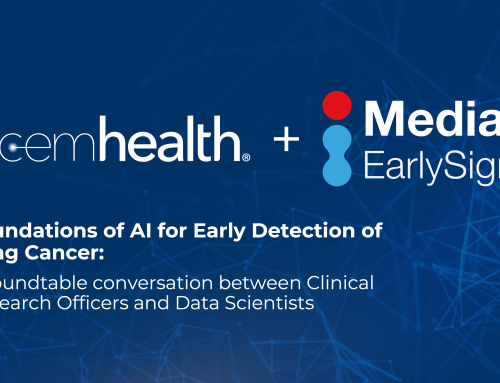
AI in Life Sciences: Use Case Examples for 2024
The use of AI in life sciences continues to be a hot topic for 2024. As AI’s capabilities advance, life sciences companies are using AI and ML models to help develop drugs, optimize clinical trials, power personalized medicine, and find undertreated patients to accelerate treatment. Let’s explore some of the ways AI is helping life sciences companies innovate.
Enhancing Drug Discovery with AI
AI has the potential to significantly accelerate and improve the drug discovery process. Platforms like NVIDIA’s Clara Discovery leverage deep generative models to generate novel molecular structures with desired pharmaceutical properties. This essentially allows researchers to produce and screen drug candidates in silico.
Here is another example: Peptilogics is using AI for peptide design. They are analyzing protein-protein interactions and designs peptides computationally to target specific binding sites or biological pathways. Compared to high-throughput screening, this in silico approach can design optimized peptide candidates in a few days rather than months.
By predicting efficacy and selectivity earlier in the pipeline, AI can dramatically reduce the time required for, and lower the cost of, drug development.
AI-Powered Personalized Medicine
AI can play an important role in supporting personalized medicine initiatives by integrating and analyzing diverse health data from genomics to medical imaging. For example, Illumina is focusing the use of AI in genomics to match cancer patients with tailored therapies based on their genetic profiles. This allows oncologists to recommend specific medications and treatments most likely to benefit each individual patient.
In the emerging field of proteomics, companies like Deep Genomics are using AI to build models that can predict how genetic variants impact human cell behavior at the protein level. This has implications for developing more targeted treatments for genetic diseases. Their platform can design genetic medicines by identifying therapeutic targets and simulating how drug candidates might interact with them.
Optimizing Clinical Trials through AI
AI innovation is also helping clinical trials become more efficient. The journal Nature recently published a paper that outlines how AI can unlock valuable information from real-world data (RWD) to innovate trial design. [1] Using AI in clinical trials can inform eligibility criteria, enhance participant diversity, and reduce sample size requirements. For example, the open-source AI tool Trial Pathfinder uses electronic health record (EHR) data to simulate clinical trials, demonstrating the potential to double patient enrollment and improve overall survival rates by adopting a data-driven approach to inclusion criteria. [2]
By transforming how trials are designed and conducted, AI can help bring innovative new therapies to patients sooner.
Finding Underdiagnosed and Undertreated Patients with AI
As we’ve seen, AI is driving innovation across the life sciences pipeline – from research to clinical trials. However, for patients to fully benefit from the latest therapies and devices, they first need to be accurately diagnosed and directed to appropriate care pathways and therapeutics by their care providers.
Unfortunately, millions of people are living with chronic, complex, or rare diseases that often go undetected. Every day without accurate diagnosis and treatment puts these patients at greater risk of complications and hospitalizations.
By using AI-powered solutions that analyze existing clinical data to reveal hidden risks and undiagnosed conditions in patient populations, providers can accelerate treatment of patients most likely to benefit from therapies or devices delivered by life sciences companies. Identifying undertreated patients earlier in their disease progression can deliver immense clinical value and reduce unnecessary utilization.
At Lucem Health, we partner with life sciences companies to deliver AI-powered post-market undertreated patient identification. These solutions help providers detect targeted diseases and accelerate diagnosis and treatment.
The Future of AI in Life Sciences
The incredible velocity and unpredictability of AI related innovation makes it difficult to fully see into the future. However, AI has clearly and firmly established itself as indispensable across the life sciences value chain. Stay tuned as we dive deeper into AI’s transformative potential for life sciences and care delivery.
